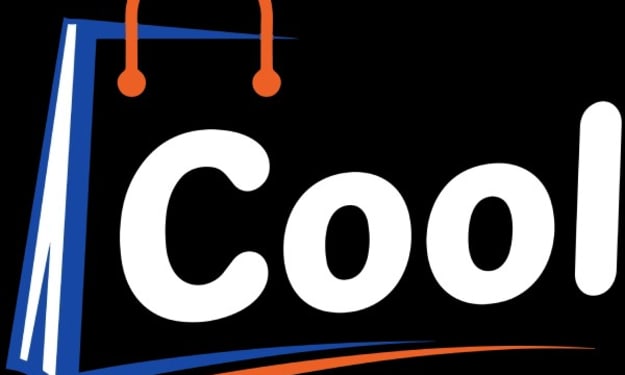Black Mental Health
Addressing mental issues in the Black Community

One of the world’s greatest conflicts is issues surrounding mental health. Poor mental health has contributed to a lot of the world’s woes and has created a lot of misery when misguided choices have been made by those with poor mental health. As an African American male I’ve come to realize in my adulthood that mental health is an issue in the Black community that has never been properly addressed and I think if we did address it more then a lot of progress would be made.
When I was 12 years old my mother said she wanted to take me to get a check up at the doctor’s office because she was believed that I had attention deficit disorder. I had no idea what that was and I had never even heard the term before. All I knew from how she explained it was it was a mental health issue that she believed I had because of behavior patterns. She also made it clear that she wanted me to get on medication for it and this was the part that bothered me the most.
As a little kid hearing this I have to say that I was really embarrassed by my mother’s recommendation. Of course it was all for the most stereotypical reasons “oh if you’re tryna get me on medicine then that means I’m slow or crazy and everybody’s gonna laugh at me when they find out. I’ll be the butt of every joke right?” Maybe some of that was true, but I was worried about the wrong thing. The fact at matter was my mental health needed better attendance because my mother was right. My reluctance to get on the proper medication had a negative effect on me for a long time and yet it was only a small example of a much bigger problem in my community.
Mental health problems are just as effective in the Black community as they are in every other community, yet they have never been addressed as much. A lot of this ignorance comes from societal stereotypes and toxic programming. Part of this comes in the form of believing that the mental health issues just aren’t there.
Something that always stuck out to me was addressing issues like crime and race in the news. I always noticed that when a white person committed a crime and the news covered it the stability of that person’s mental health was always brought into question even if it wasn’t a contributing factor. But every time someone black committed a crime I never saw their mental health brought into question, even if it may have been a contributing factor. The only thing that was ever addressed with a black suspect was their criminal history, something that their mental health may have played a part in as well.
This type of disregard for the mental state of the Black community contributes to a lot of the instability that our community suffers from, but why exactly is that? As a Black man I can honestly tell you that part of it has to do with pride on our own parts as African Americans. We have been through so much as a race that has caused us to wanna be self sufficient even in situations where we’re meant to be dependent on someone or something else and this happens to a fault. I wouldn’t be exaggerating if I said that a big part of our community’s mindset about mental health is “suck it up and deal with it, because we’ve been through so much as it is, so this should be nothing to juggle.” Bad way to go.
A lot of the influence on why we haven’t properly tackled our mental health issues is also external. A lot of the anti-Black side of American society has always portrayed African Americans as innate savages and that mental health is never a factor when we’ve done something wrong, we’re just a bunch of naturally destructive creatures by their depiction. This goes back to what I said before about the biases of news media. How many negative incidents involving African Americans could have been potentially avoided if the mental health of the person(s) involved hadn’t been left unchecked?
When my mother put me on ADD medicine as a kid it really made a difference, but somewhere down the line I stopped taking it when life got financially hard for us and I ended up not living with my mother anymore by the time I was a teenager. I knew I needed to be on that medication but was too proud and embarrassed to accept it. By doing this I made my life a lot harder than it should of been growing up.
Aside from cases like mine I also witnessed mental plague the Black minds around me with anxiety and depression, which of course led to erratic behavior and suicide. Ironically, my own mother who did everything she could to get me on medication for my mental issues was battling her own mental health demons with bipolar disorder. My mother’s bipolar disorder was born from the trauma and abuse she endured in her youth and during her time raising me and my siblings she never took any medication for it. We suffered a lot abuse on her part because of it. I never thought a lot about why she never took medicine for her bipolar disorder. I just always figured she was too proud to accept it.
This is a message to the world, especially Black Americans. We need to start addressing mental health concerns more in our community. When we take this initiative we will lessen a lot of the pain and suffering we cause and endure ourselves on a regular basis. But the best way to start this is by clearing our minds of ignorance and stripping our emotions of pride. I truly believe that doing this will lead to a lot healing of mental health in the Black community.
About the Creator
Joe Patterson
Hi I'm Joe Patterson. I am a writer at heart who is a big geek for film, music, and literature, which have all inspired me to be a writer. I rap, write stories both short and long, and I'm also aspiring to be an author and a filmmaker.
Enjoyed the story? Support the Creator.
Subscribe for free to receive all their stories in your feed. You could also pledge your support or give them a one-off tip, letting them know you appreciate their work.






Comments (1)
Thank you for sharing this. This is an important conversation we need to continue having in the Black community. I believe all the reasons you bring up as to why many of us are loathe to seek mental health care are very true, unfortunately. Another obstacle I've observed and experienced is religion. The Black church has played a huge role in our community, past and present. It has done a great deal of good, in terms of giving us the strength to get through all manner of oppression and marginalization. But one drawback is that a lot of issues tend to be overspiritualized to our detriment. A lot of mental illness is seen as the work of the devil/demons, and getting mental health help is viewed as not having enough faith. As a result, so many are suffering and not seeking the help they need. Earlier this year, a close family member began facing some major mental health challenges. Myself and another family encouraged him to be seen by a mental health professional, and I had even relayed that I had gone through similar things and had gotten help myself. He went to a hospital and he was placed on medication that helped him. But there were others close to him that were trying to dissuade him from taking his medication because they believed the issue he was encountering was a spiritual attack rather than mental illness, and that he would become "dependent" on the medication. I believe they meant well, but it was a misunderstanding of how mental health treatment works. He listened to them for a brief time, but then his symptoms came rushing back. I encouraged him to talk to his doctor about his concerns, which he did. He got the answers he needed, got back on the medication, started going to therapy regularly, and made other lifestyle changes that have helped him immensely.